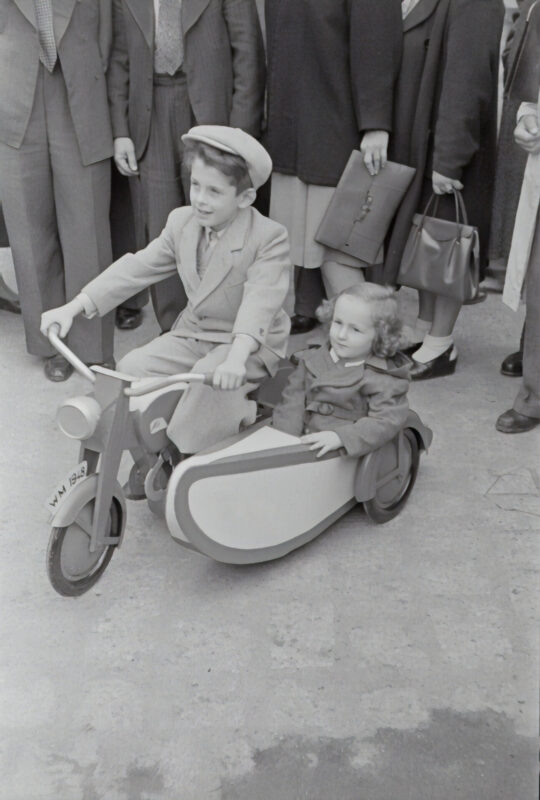In many of our previous articles we discussed the eligibility requirements to apply for Italian citizenship by descent and the different pathways one can pursue in order to be granted citizenship. This article in particular will analyze applications which must be filed in court due to the fact that an individual’s qualifying ancestor is a female who could not pass citizenship on to her children prior to January 1, 1948. More specifically, this article will assess this scenario by focusing on the ancestor’s child’s age as this is a crucial element to consider when evaluating eligibility. As a matter of fact, if you apply for citizenship via an ancestor who was born in Italy and who never naturalized, or became naturalized when his/her child was an adult, the chances of being granted citizenship are higher compared to if you apply via an ancestor who became naturalized while his/her child was still a minor[1], but let’s see why…
If you have a 1948 case and your ancestor’s child was a minor at the time of the ancestor’s naturalization, your application might not be as straightforward as expected because a number of judges specifically within the Court of Rome tend to give a rather restrictive interpretation of the law and they claim that Italian citizenship cannot be transmitted if the child who was born in the U.S. was a minor when the parent became a U.S. citizen. According to these judges, the child automatically lost his/her right to Italian citizenship when the parent acquired U.S. citizenship, thereby losing the ability to pass it to the next individuals in line as an adult. Regrettably, if you fall into this category you might be assigned to a judge who could apply the interpretation of the law described above, and thus argue that you cannot claim Italian citizenship by descent[2]. Nevertheless, it is worth mentioning that several rulings of the Civil Court of Rome have been successfully challenged via the Appellate Court.
It is important to point out that there are other judges within the Court of Rome who have applied the most widely accepted interpretation of the law to the cases mentioned above, thereby allowing the minor child of an Italian immigrant to maintain both Italian and U.S. citizenship.
On the other hand, if your ancestor, who was born in Italy, emigrated to the United States and never naturalized, or naturalized as a U.S. citizen after the child who was born in the U.S. reached the age of majority, then the child inherited Italian citizenship and was able to pass it on to the next individuals in line without any limitations. It is also worth pointing out that if your male ancestor naturalized while his child was still a minor, this may not jeopardize your application because your qualifying ancestor might be your female ancestor who never naturalized, or who naturalized at a later stage, when her child was an adult, for instance. Indeed, in this case you can file an application through your female ancestor, provided that she was born in Italy.
It is worth mentioning that on November 26, 2021, the Italian government approved a law which became effective on December 24, 2021 and implementable as of June 22, 2022. The law establishes that when the petitioner resides abroad, the lawsuit can be filed at the court that covers the jurisdiction of the Italian father, mother or ancestor’s municipality. These provisions allow other courts – in addition to the Court of Rome – the ability to litigate 1948 cases and therefore, the decision as to whether citizenship can be transmitted if an ancestor’s child was a minor when the parent became a U.S. citizen will probably vary depending on the court via which an applicant files his/her application because some judges’ interpretation of the law might be different from the one of the judges in the Court of Rome. As a matter of fact, a number of cases have been approved by a group of local courts in Italy which have applied the most broadly accepted interpretation of the law whereby an individual whose ascendant was a minor at the time of his/her parent’s naturalization may be granted Italian citizenship.
Please note that there are a number of eligibility requirements to apply for Italian citizenship. Among these, for example, your ancestor must have been alive at the time Italy was unified as a nation on March 17, 1861, or he/she must have been born after that date. You must also prove that your ancestor, who was born in Italy and through whom you are claiming citizenship, passed his or her Italian citizenship to the next individual in the Italian lineage and down to you without breaking the chain. Finally, your ascendants in the Italian lineage must not have renounced their Italian citizenship voluntarily in order for you to be able to apply.
Finally, when you apply for the recognition of citizenship you will need to provide the Italian authorities with certified copies of birth, marriage, divorce (if applicable) and death certificates pertaining to the individuals in the Italian lineage. These records will need to be authenticated with an Apostille and translated into Italian. Please note that contrary to applying via an Italian consulate, the translations of the documents will need to be certified prior to being submitted to the court.
If you would like further information regarding the paths you can pursue in order to apply for Italian citizenship and the specific documents needed to apply, please contact our team at [email protected].
___
[1] Prior to 1975 the age of majority in Italy was 21
[2] Please note that the restrictive interpretation of the law is only applied by a number of judges within the court of Rome to 1948 cases; in other words, it does not apply to cases which can be filed via an Italian consulate or via a municipality in Italy.

